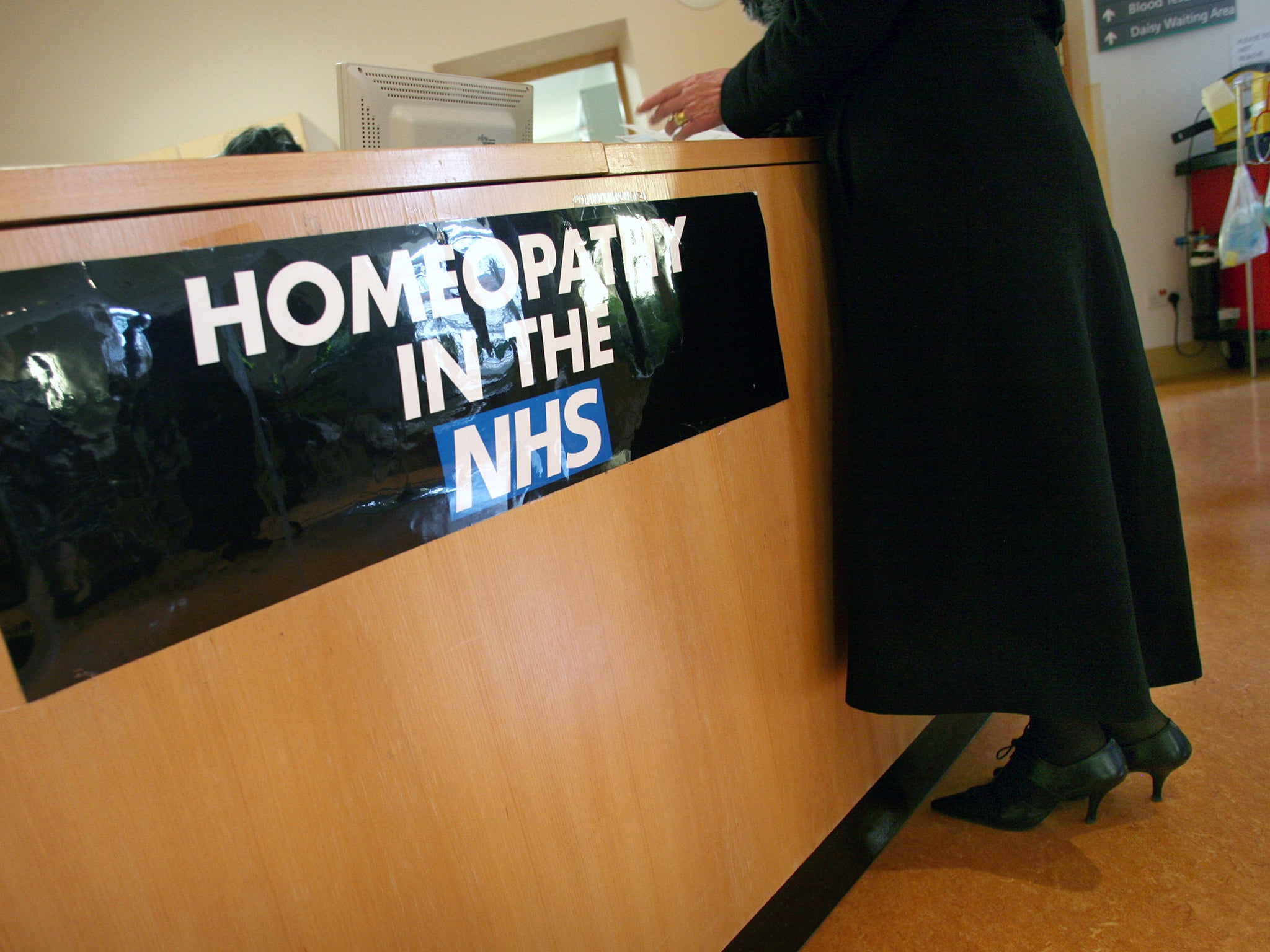NHS tells Jeremy Hunt: Homeopathy on prescription should be 'blacklisted' because it doesn't work
‘The NHS should not be paying for low-value treatments’

Homeopathy and herbal remedies are among seven treatments which NHS bosses have told Jeremy Hunt to officially “blacklist” from prescriptions because of a lack of evidence about their effectiveness.
GPs will be asked not to prescribe them any more and to take patients off these treatments if they’re currently being prescribed on the NHS.
The Health Secretary has previously been forced to defend his position on homeopathy after he signed an early day motion in support of the treatments on the NHS in 2007.
He subsequently clarified he did this on behalf of a constituent while still a “young MP”, but as Health Secretary he “follows the evidence” on what works.
In the British Medical Association and Royal Pharmaceutical Society’s responses to NHS England’s report on low-value treatments, both organisations said homeopathy should be blacklisted. The National Institute for Health and Care Excellence also said multiple reviews had “showed no evidence of the effectiveness of homeopathy”.
The NHS only spends around £100,000 a year on homeopathic remedies, comparatively it spends £6.3m on omega-3 supplements which can be obtained from food.
But the report says despite these “marginal costs” clinical evidence should take priority over anecdotal reports from patients who say it helps them.
It is joined on the proposed blacklist by herbal remedies, muscle rubs and dietary supplements which also have limited evidence.
While it is suggested painkiller co-proxamol should be blacklisted because of safety concerns.
The NHS England board began a consultation on 18 treatments of low effectiveness in July and concluded its findings today saying blacklisting these treatments and restricting 11 will save up to £141m a year.

The report from the board says: “In relation to a number of drugs, the consultation feedback included requests that the particular drug should be formally placed on the ‘blacklist’.”
“This is not a matter for NHS England, but rather one for the Secretary of State to consider.”
The treatments proposed for blacklisting are:
- Co-proxamol
- Joint supplements glucosamine and chondroitin
- Herbal treatments
- Homeopathy
- Lutein and antioxidants, supplements for sight degeneration
- Omega-3 fatty acid supplements
- Rubefacients used to relieve muscle pain
Recommendations on the other treatments mean they should not be routinely prescribed, but NHS England national medical director Professor Sir Bruce Keogh said that the recommendations are “not a ban, as in medicine it is dangerous to say never”.
But it will mean treatments should only be prescribed free where they meet stated exemptions, such as for individuals with a learning difficulty or dementia who cannot purchase medications over the counter, or where over-the-counter products have been unsuccessful.
GPs issue more than a billion items on prescription each year, which cost £9.2bn in 2015-16, and some of these medicines, such as paracetamol and cough syrups, can be bought much more cheaply over the counter.
NHS England expects to run a further consultation in the new year on 36 conditions with effective over-the-counter treatments which should also not be prescribed, this could save a further £190m each year.
NHS England chief executive Simon Stevens said: “The NHS is one of the most efficient health services in the world but we’re determined to make taxpayers’ money go further. The NHS should not be paying for low-value treatments and it’s right that we look at reducing prescriptions for medicines that patients can buy for a fraction of the price the NHS pays.”
Groups opposed to the NHS funding of homeopathy welcomed the news saying it would save money for patients, and make clear that homeopathy is no more than “sugar pills”.
Humanists UK director of public affairs and policy, Richy Thompson said: “We’re delighted that decision-makers at NHS England have looked at the evidence on this issue and made a clear decision. This means that more funds will now be available for patients who need genuine treatment and support from their GPs.”
GP leaders said the focus on evidence and self-care was absolutely correct, but GPs still have a duty to fund treatments where they see them as clinically necessary
Dr Andrew Green, GP prescribing lead for the British Medical Association, said: “Where drugs are dangerous or shown to be ineffective it is absolutely right that they are blacklisted and shouldn’t be recommended for use. Any treatment on the NHS needs to demonstrate it is safe and provides clinical benefits to the patient.”
But he added the BMA has concerns “about the cost implications for vulnerable people” of changes to require more medicines to be bought over the counter.
Dr Helen Beaumont president of the Faculty of Homeopathy, which represents doctors using homeopathic treatments, including some in the NHS, said: “NHS England’s decision makes no clinical or economic sense.
“Patients currently receiving homeopathic medicine will now be prescribed more costly drugs, which is counter to NHS England’s objective of reducing prescribing costs.”
Join our commenting forum
Join thought-provoking conversations, follow other Independent readers and see their replies
Comments
Bookmark popover
Removed from bookmarks